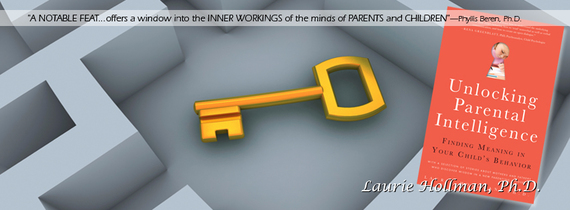One of many Saturdays, a thirteen-year-old spent the day screaming, throwing things, criticizing everyone for hours then slamming her door to her chaotic messy room and sleeping for hours. Barely revived for dinner, she complained about the food, yelled at her mother for not knowing she was a vegan, and tossed her full dishes in the sink.
Her mother was angry, tired, and felt disrespected. She didn't deserve this treatment and took it personally. Was this what the beginning of teenage life was going to be? Could she tolerate it? Have you had this kind of experience?
Earlier in the day this distraught mother had yelled," What's wrong with you?" sarcastically fed up and beside herself with her incorrigible child. Her husband was no help when he said: "Now you've done it. She'll never speak to you again." They had an argument about how to raise kids, something they'd done since she was a baby.
But by the end of the weekend, the thirteen-year-old's mother shifted her tone and asked once again but in a gentle voice, "Sweetheart what's wrong?" To this change of maternal voice, her daughter let forth a torrent of tears: "I have no idea! I wake up with a weight on my shoulders and force myself out of bed. Everybody and everything irritates me. I don't want to be this horrible person but I think I'm going crazy."
This was the dramatic, terrifying opening that her mother needed to face: the outbursts were hiding a deep insidious depression overtaking her daughter. There were no outward stressors beyond the norm of lots of homework, dramas with girlfriends, and frustrations with teachers. Her grades were decent, she got to school on time, and nothing traumatic seemed to be happening, or had it ever that she could remember. However, this mother was reminded of the depressions that crept through the female side of her family and now she knew sadly it was her daughter's turn.
The outbursts were just outer signs of a deep internal struggle with a biological base that made everyday life seem like a torrent of wounds. Her child's revelation opened the door to a wish for help that had been conveyed indirectly through all the complaints, messes, and screams. They weren't innocuous, unwarranted bids for attention, they were demands for support and help. And once this mother no longer felt personally provoked, she could see with different eyes that the baby she had nursed and cuddled needed her warmth and strength again without judgment or accusations.
That cold weekend turned into a warm one as mother and daughter shuddered and cried together. Regaining composure the mother explained depression to her daughter. They google searched the signs and symptoms and knew this was beyond her daughter's immediate control. She needn't be blamed or accused of anything. They would work it out with help and kindness. This surely wasn't about self-discipline, disrespecting parents, messy rooms, and outbursts; it was going to be about learning, professional help and above all love.

Laurie Hollman, Ph.D. is a psychoanalyst with a new book out, Unlocking Parental Intelligence: Finding Meaning in Your Child's Behavior, on amazon, barnes & noble, familius, and wherever books are sold.